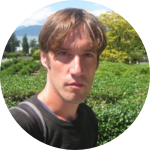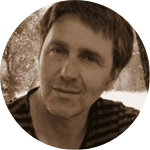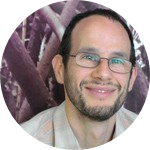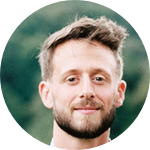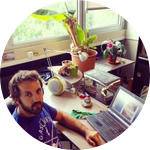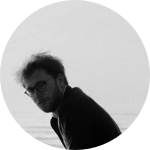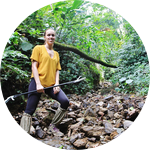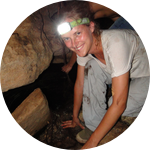About This Project
The Dimonika Biosphere Reserve (Congo-Brazzaville) provides a unique array of habitats to species like the Western Lowland Gorilla due to its mix of ocean and mountain traits. Being highly populated, the area is in desperate need of a custom conservation policy. By mapping the use of ecosystem services, we will provide exploratory socio-ecological data which would open up the area for further research and adapt the current management so conservation and sustainable development meet.
Ask the Scientists
Join The DiscussionWhat is the context of this research?
Man & Biosphere (MAB) Reserves are facing many management challenges, especially in Africa. By collecting data on the state and trends of ecosystem services in the Dimonika MAB Reserve in Congo-Brazzaville, we aim at a better integration of social and ecological objectives which will benefit the local communities and foster the conservation of afromontane tropical biodiversity. We will use a TESSA-inspired Nominal Group Technique as a rapid ecosystem services assessment tool to map stakeholders’ perceptions and preferences regarding ecosystem services management in Dimonika. This will allow us to apply a social-ecological perspective to the area in a systematic and scientifically verifiable way.
What is the significance of this project?
Very little information is available about this area as hardly any research has been done so far. By providing exploratory data about the socio-ecological situation of the Dimonika Biosphere Reserve (DBR), it will be possible to evaluate the current management and suggest tailor-made strategies for a more sustainable development and conservation of this region. Raising awareness of the local stakeholders and policy makers about the economic value of the biodiversity and ecosystem services would enable a better protection of the DBR and its resources for future generations. This will also enhance the protection of the several unique habitats, fostering highly endangered species like the Western Lowland Gorilla.
What are the goals of the project?
We are curious to get a complete overview of what ecosystem services are provided by the Dimonika Biosphere Reserve (DBR), how they are managed and who are the stakeholders that depend on those services. To come to an overarching answer to these questions, we will make use of three complementary methods: through a Q methodology and a TESSA-tool inspired Nominal group technique local stakeholders will be addressed and a Delphi technique will be used to approach expert stakeholders who are linked to the DBR. From the gathered data we will compose an adapted management strategic plan for the policy makers to consider. And as a cherry on the cake, we aim for a publication in a peer-reviewed journal, which may open up doors for further research and protection of the region.
Budget
International Transport
We are three biology MSc students from Belgium without funding from within our university. Our fieldwork takes place in Congo-Brazzaville, the cheapest flight goes from Paris to Pointe-Noire. Each ticket costs 900 US dollars, with a total cost of 2700 US dollars.
Local Transport
We will be in need of transport to and within the local communities located in the Biosphere Reserve to gather participants for the interview and workshops.
Local Translators
All three of us speak French, which is the official national language. But some local communities will only be able to express themselves in one of the other two national languages, Kituba and Lingala, for which we need local translators.
Food and Water
Simple meals and water for all field workers and participants, as a thank you for their participation.
Crowdfunding Fees
The platform charges a 8% platform fee plus a 3-5% payment processing fee.
Endorsed by
 Project Timeline
Project Timeline
We will complete our field work in Congo-Brazzaville in six weeks. In this time, we will do two rounds of the Delphi method with experts in Pointe-Noire. We will apply the Q methodology and TESSA-tool inspired Nominal Group Technique (NGT) with locals in the Dimonika Reserve. We aim for a frequence of 1-2 Q sessions a day for four weeks, and a total of 10-15 different stakeholders gatherings for the NGT. We calculate two extra weeks for any delays.
May 09, 2018
Project Launched
Aug 01, 2018
Travel from Brussels (Belgium) to Pointe-Noire (Congo-Brazzaville)
Aug 08, 2018
First round of Delphi method finished in Pointe-Noire
Aug 09, 2018
Start Q and TESSA with locals in Dimonika Biosphere Reserve
Sep 06, 2018
Finish Q and TESSA with locals in Dimonika Biosphere Reserve
Meet the Team
Team Bio
First and foremost, we would like to thank you for taking the time and effort to read more about our project. We are honored and glad you're interested in our masterthesis.
Secondly, this project is unique by bringing together three young scientists who already worked together for almost five years, which has shaped our bond. By knowing each other’s strengths and weaknesses, we could say that we are a well-adapted team to tackle emerging problems.
Thibaut Vandervelden
Hi everyone! I'm Thibaut, a biology master student from the Free University of Brussels (VUB) and one of the team members who's planning to go to the Dimonika Biosphere Reserve in Congo-Brazzaville.
Probably you all wonder 'why you?', 'why this project?'
Well, I would say that I am an anti-fragile person, by which I mean that I thrive in circumstances that not always go as planned, I adapt and try to work the current situation. I could say that I gain experience from these kind of events, and don't we all need that? Furthermore I regard myself as a valuable asset to this team because of the theoretical knowledge acquired during my study period at the VUB about social-ecological systems, forests and agroforestry systems and social and cultural transition strategies for sustainable development. So, I am really thrilled to put all these insights into practice in this new and exciting environment.
For almost five years we have been swamped in books, papers, lectures... You name it. But, this project finally provides us with the opportunity to put our theoretical knowledge into action. My main goal is to actually make a positive impact for the local communities and raise awareness among our scientific peers about the current state of our study site.
Frieda Van Roy
In my leisure time I try to surround myself as much as possible with nature. This was already the case when I was a child. You could always find me outside, while others were focused on computers and social media. From a young age, I was fascinated by nature and this fascination has continued to grow. For me, nature is resplendent with beautiful fauna and flora that are a source of inspiration for us and reveals the wonders of evolution. They are not only indispensable to keep nature in balance, but also our well-being.
Now as a young adult, I extend my passion in my studies. I completed my Bachelor of Science degree in Biology at the University of Brussels (2017). Now I’m completing my Master of Science degree in Ecology and Biodiversity with a focus on Human Ecology. I also gained experience in tropical fieldwork through a specialized herpetology trip in Arunachal Pradesh, India.
Through exploring and learning more about conservation and sustainable development, I continue to develop a strong desire to work in the field and to be aware of the local context and the needs of differing stakeholders. When trying to protect a landscape or region, it is important to work with the locals, to understand and address their different viewpoints and respect their indigenous rights.
Iliana Janssens
Hi there! I'm Iliana, a Biology master student at the Free University Brussels (VUB).
Personally I have always been intrigued by the human impact on nature and vice versa. I broadened my horizons at 16 as I embarked on solo backpacking trips to wildlife areas all over Europe, and later also in Canada, Guatemala, Mexico and Belize to experience current challenges in conservation firsthand. My engagement in nature conservation was not passive. I also decided to take action. From the age of 18, I worked three summers as a fundraiser for Greenpeace on the streets in Belgium. Being confronted with the prevalent apathy towards conservation however, did not leave me disappointed but sparked my motivation even more.
To be more effective as a change maker, I decided to educate myself and personally contribute to the active protection and conservation of the fragile ecosystems we have on this planet. I understood the need to alleviate poverty, and to involve and educate local communities to reduce human impacts on the environment. These needs are highest in the tropics where concentrations of biodiversity are in constant conflict with growing populations. This is why this project is so important to me as I hope to have, in cooperation with the local people, a positive impact on the current situation in Dimonika.
Additional Information
The credentials of the three upper photographs used on our cover photo belong to Jan Limbourg, resident of the DBR.
The copyright of the Western Lowland Gorilla and the baby photograph belongs to the www.go2africa.com webpage.
Project Backers
- 25Backers
- 26%Funded
- $1,360Total Donations
- $44.08Average Donation
